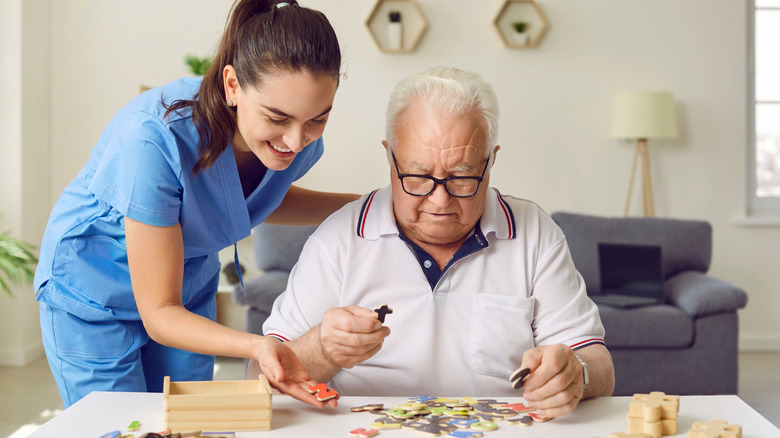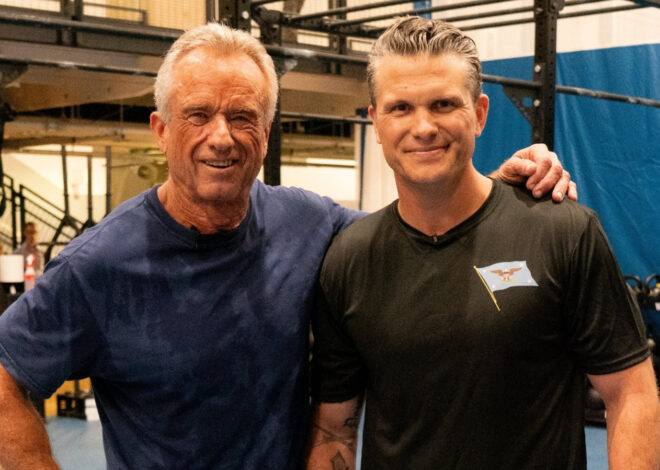
What Happens To Your Life Expectancy After An Alzheimer’s Diagnosis – Health Digest
Alzheimer’s disease affects more than 7 million adults in the United States, according to the Alzheimer’s Association. Early symptoms of Alzheimer’s you should never ignore include problems concentrating, getting lost while driving to familiar locations, and difficulty finding words in conversations. These symptoms can lead to people withdrawing from social connections, which can hasten the progression of the disease (by the way, here’s the difference between normal aging and Alzheimer’s).
When someone is diagnosed with Alzheimer’s, the life expectancy can be up to 10 years upon initial diagnosis. However, it depends upon how quickly the disease progresses. Alzheimer’s progresses more slowly than other types of dementia, although people diagnosed with Alzheimer’s before age 65 might see the disease progress more quickly. The disease can also progress if someone has other health issues, such as unmanaged heart disease or diabetes. It’s difficult to predict how quickly Alzheimer’s will progress in each person, but it helps to understand how long each stage of dementia lasts.
The stages of progression in Alzheimer’s
Although brain fog can often occur as early as perimenopause, the early stages of dementia could appear as continually misplacing keys or cell phones. Someone with Alzheimer’s could completely forget a recent event and find it difficult to make or follow plans. This can make problem-solving and paying bills difficult. At this stage, the person can still live independently but should begin making plans for their future care. A neurologist or geriatrician can help diagnose Alzheimer’s or other types of dementia through psychological testing or lab tests to rule out other conditions such as a vitamin B12 deficiency or a thyroid condition. This initial stage of dementia can last about two years.
The middle stage of dementia can last up to four years, and at this stage help might be needed at home. Some friends and loved ones may seem unfamiliar, and communicating with others is more difficult. You might also notice mood changes such as apathy, depression, or anxiety, but people with Alzheimer’s can also become paranoid or experience hallucinations.
During the later stages of dementia, memory, verbal communication, hallucinations, and aggression can be challenging for family members and caregivers. At this point, the person will need full-time assistance with eating, getting dressed, and going to the bathroom. Regardless of the type of dementia, this stage lasts between one and two years.
Treatments for Alzheimer’s disease
Despite extensive research on Alzheimer’s, there is still no cure for the disease. For people in the early stages of Alzheimer’s, two treatments are available to slow the progression of the disease. Donanemab (Kisunla) is a 30-minute intravenous (IV) therapy taken every four weeks that reduces amyloid-beta plaques in the brain. Lecanemab (Leqembi) is another IV therapy that’s administered every two weeks, and treatments last for about an hour. Lecanemab also lowers the plaques that can cause cognitive decline.
Some Alzheimer’s treatments address the cognitive symptoms. Cholinesterase inhibitors like Donepezil prevent the breakdown of key messengers needed for memory and thinking. Glutamate regulators improve cognitive function by managing glutamate, which assists with cognitive processing. Other medications treat behavioral symptoms of Alzheimer’s such as insomnia and agitation.
Someone with Alzheimer’s can improve their quality of life while living with the disease by remaining optimistic, getting plenty of sleep, and eating a healthy diet. It also helps to quit smoking and cut back on alcohol. Taking care of your brain health also includes learning new skills, taking classes, or putting your creative mind to work. Engaging in social activities also keeps your mind engaged. Regular exercise also counts as a social activity while keeping your heart healthy.





